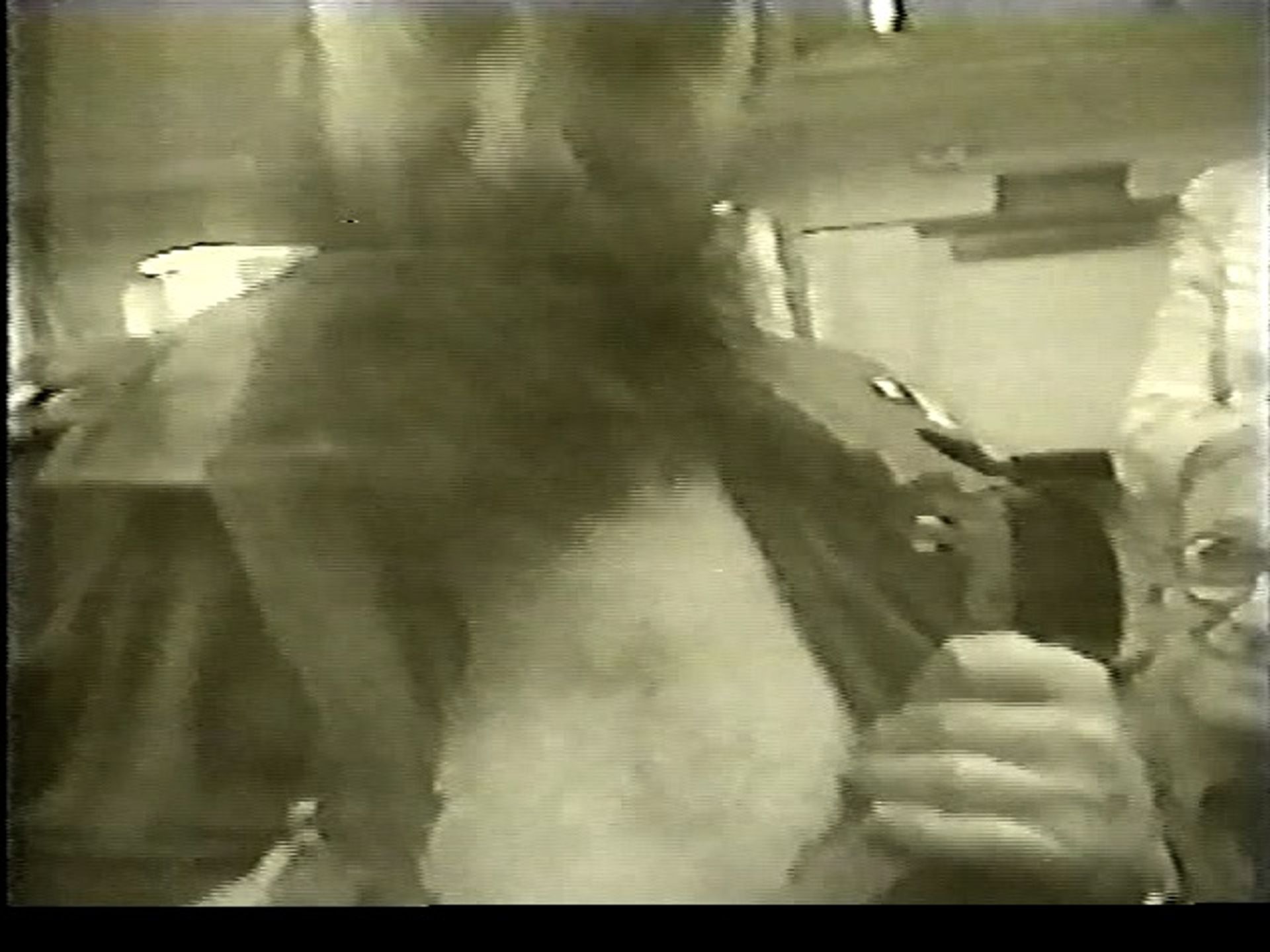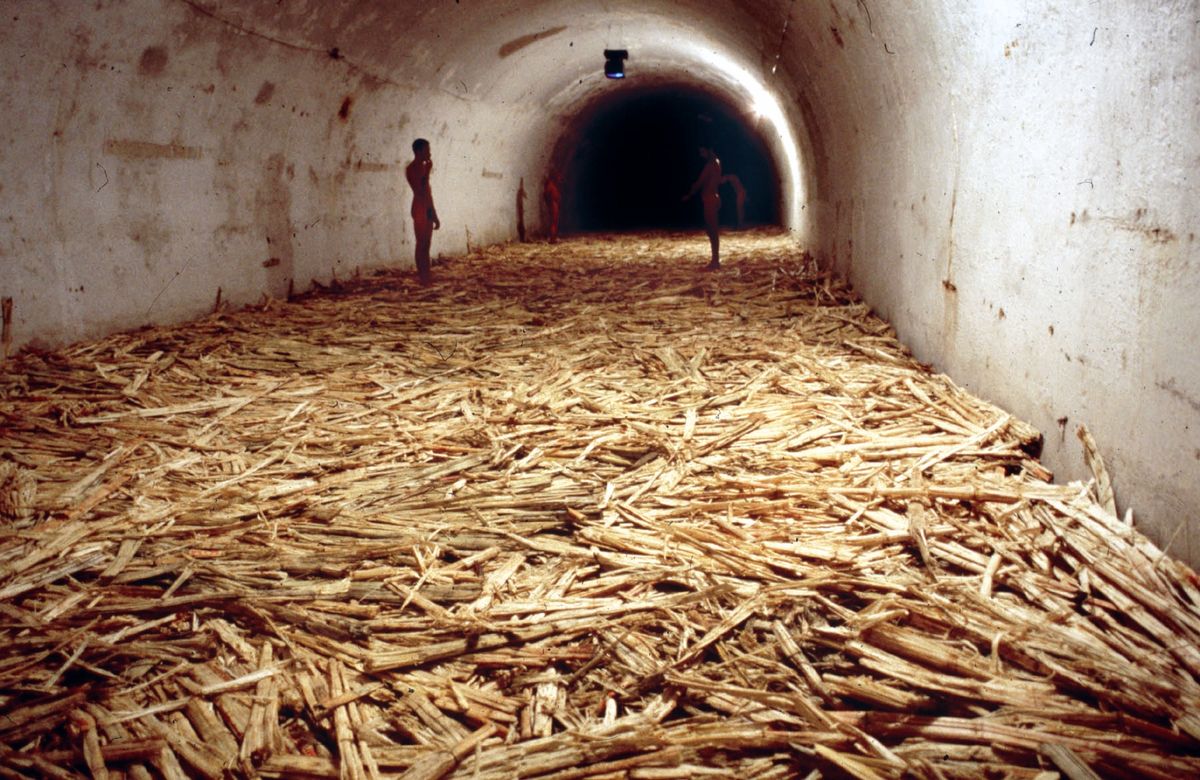The activist Cuban artist Tania Bruguera unveils her political performance Untitled (Havana, 2000) at the Museum of Modern Art (MoMA) in New York this Saturday (3 February) for the first time since the museum acquired it in 2015. The work, which deals with corruption and censorship during the Cuban Revolution, address themes that “are especially important to discuss in the Trump era, and that can hopefully translate to MoMA’s international and multi-generational audience”, Bruguera told us during a preview on Tuesday.
The immersive piece was first staged nearly two decades ago under the title Ingenieros de Almas (Engineers of the Soul) as part of the 7th Havana Biennial in the Cabaña Fortress, a military bunker that served as a holding cell and torture and execution site for Cuban prisoners of conscience under Fidel Castro’s regime. Bruguera covered the floor of the subterranean space with rotting sugarcane bagasse and illuminated the bunker with a small television on the ceiling showing propaganda videos, while four nude men performed a series of symbolic movements like bowing and brushing their bodies.

Video still from Tania Bruguera’s Untitled (Havana, 2000) Courtesy of the artist. Photo: Casey Stoll
Cuban authorities shut down the performance a few hours after it premiered in Havana on the grounds that public male nudity was prohibited. The work was staged once outside of Cuba before being included in the 56th Venice Biennale in 2015, and each time Bruguera and a conservator have methodically attempted to recreate the emotion of the original bunker, exacting everything from the stench of the sugarcane to the performers selected to participate, who are always Cuban or come from Cuban families. “There’s an emphasis on everything needing to feel authentic, so it’s all set up like it was in Havana,” Bruguera says, “If Trump hadn’t set restrictions for Cuban performers coming here, we would have brought our original artists, too.”
The chief curator of media and performance art Stuart Comer says that the work “represents history through a living situation” in ways that paintings and other works of art cannot achieve. He adds that the New York staging raises questions around the “representational role of art in political situations [and] what performance means after its original iteration—some projects can and should be restaged and others function better in documentation”.
The museum has organised a series of programmes tied to the exhibition, including a workshop led by Bruguera on art as a social tool (9 and 10 February), a panel discussion with Bruguera, Claire Bishop and Gerardo Mosquera (26 Feburary), and a weekend-long film programme dealing with censorship in Cuban cinema (9-11 March).
• Tania Bruguera, Untitled (Havana, 2000) at the Museum of Modern Art, New York (3 February-11 March)


